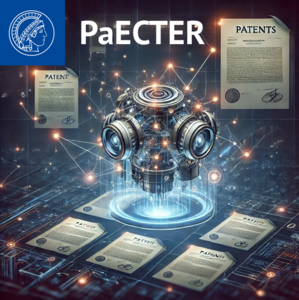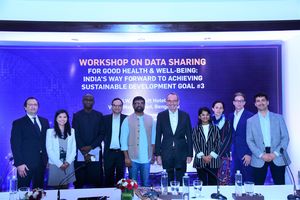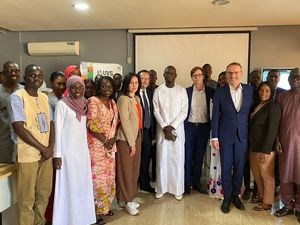The project is grounded in a striking observation: Ukraine was the dominant location of pharmaceutical production in the USSR, accounting for over 70% of the total Soviet pharmaceutical R&D and production capacity. Today, these capabilities remain still “in the ground and air”. Economists refer to this legacy as the country’s “industrial memory”. These unique capabilities hold significant relevance for discussions on industrial policy and highlight Ukraine’s potential to reclaim its position as a major player in the global pharmaceutical industry.
Rebuilding Ukraine’s pharmaceutical sector is a strategic win-win project. An EU-integrated Ukrainian pharma sector could strengthen Continental supply chain resilience. The COVID-19 pandemic and geopolitical tensions exposed Europe’s overreliance on Asian producers for medicine. Having a modern Ukrainian pharmaceutical base next to the EU would diversify supply sources and act as a buffer in times of crisis.
The project proposes developing a comprehensive playbook to support the rebirth of Ukraine’s pharma industry. This playbook will help fill gaps in the EU’s supply networks and create a high-value added component for Ukraine’s economy by contributing to the country’s economic growth and resilience.
Members of the project team working at the Max Planck Institute for Innovation and Competition are:
Prof. Dietmar Harhoff, Ph.D. (Director at the Institute), Prof. Dr. Nataliia Mazaraki (Head of the Academic Department of International, Civil, and Commercial Law at the State University of Trade and Economics, Ukraine) and Prof. Dr. Liudmyla Petrenko (Business Economics and Entrepreneurship Department at Kyiv National Economic University named after Vadym Hetman) as well as Senior Research Fellows Michael E. Rose, Ph.D., and Dr. Daria Kim.
The local team will collaborate closely with Ukrainian researchers and institutions, which will play a key role in shaping the project’s research agenda and ensuring its relevance to the Ukrainian context:
Oksana Kashyntseva, Ph.D. (Advisor to the Head of the National IP Office of Ukraine), Yevgeniya Piddubna (Director of Corporate Communications at Farmak JSC), Olha Urazovska, Ph.D. (Deputy Head of the Intellectual Property and Innovations Department of the National IP Office of Ukraine), Olha Omelchenko, Ph.D. (Senior Researcher at the Scientific-Research Institute of Intellectual Property of the National Academy of Law Sciences), Anastasia Homeniuk (Ph.D. Student and Junior Researcher at the Scientific-Research Institute of Intellectual Property of the National Academy of Law Sciences), Tetiana Pyatchanina, Ph.D. (Head of the Department of Patent and Licensing Activities and Information Support at the R.E. Kavetsky Institute of Experimental Pathology, Oncology and Radiobiology of National Academy of Sciences), Yaroslav Iolkin, Ph.D. (Senior Researcher at the Scientific-Research Institute of Intellectual Property of the National Academy of Law Sciences), and Viktoriia Kyrylenko (Ph.D. Student, Kyiv National Economic University named after Vadym Hetman).
Through this collaboration, we will foster a deeper understanding of the country’s industrial capabilities and identify opportunities for growth and development.
We are grateful for the VolkswagenStiftung’s support, which once again recognizes the value of unorthodox research and its potential to drive positive change. The funding will enable the Institute to pursue the ambitious goals and meaningfully contribute to the revitalization of Ukraine’s pharmaceutical industry.
For more information on the project, please refer to the project poster (PDF).























